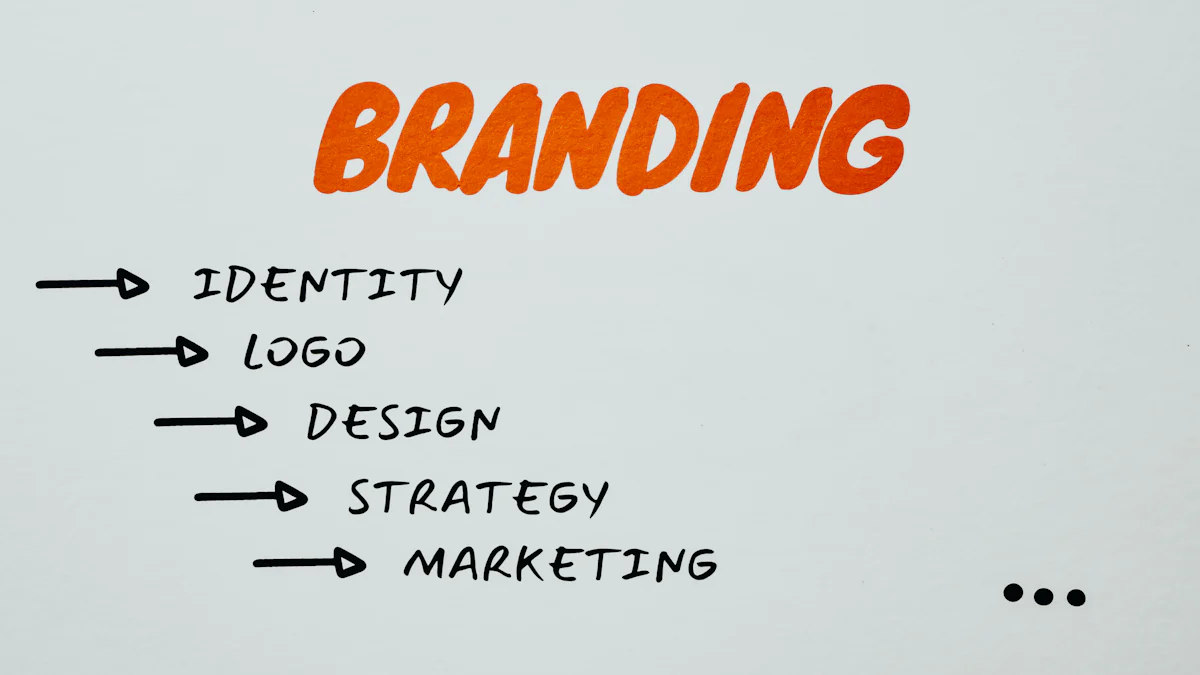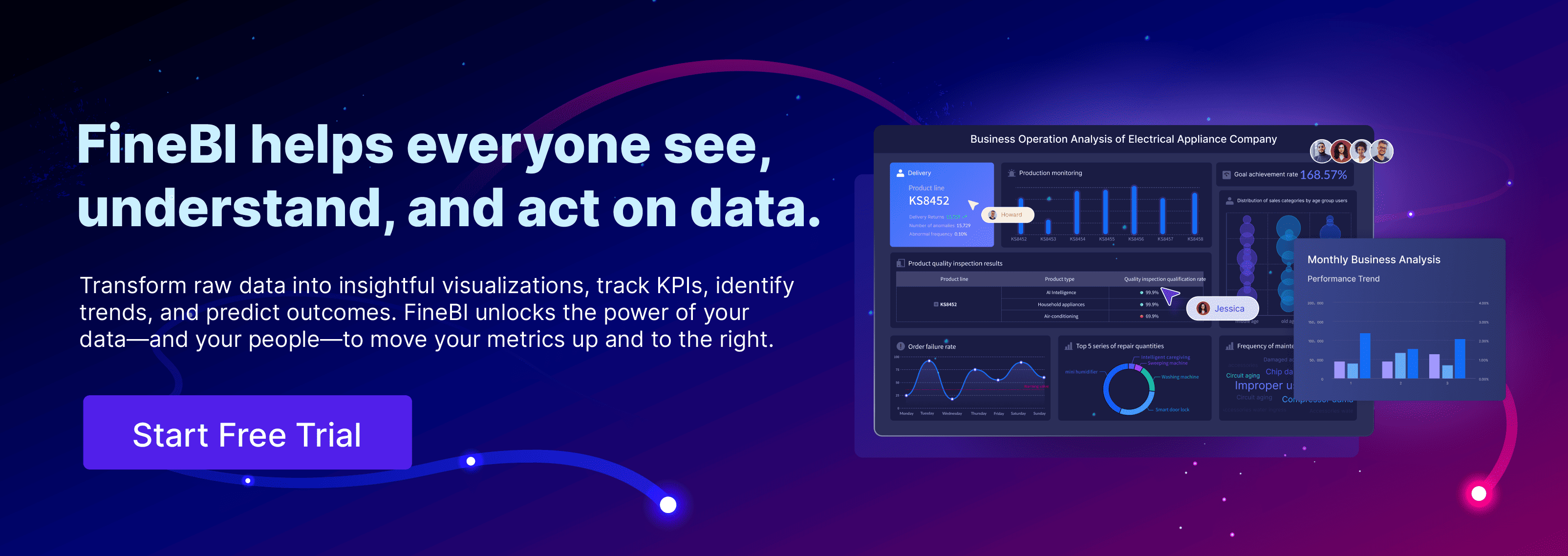

Marketing Campaign Management
Sean, Industry Editor
Oct 07, 2024

Marketing Campaign Management involves planning, executing, and monitoring marketing initiatives. It plays a crucial role in aligning your marketing efforts with business goals. Understanding this process helps you harness digital technology for precise measurements. For instance, digital tools offer rapid insights into campaign success rates. You can see how effective email marketing keeps your audience engaged. By mastering Marketing Campaign Management, you can boost conversions and revenue. Imagine increasing newsletter subscribers by 5,808 in just ten months. This knowledge empowers you to create impactful campaigns that resonate with your audience.
Understanding Marketing Campaign Management
Definition of Marketing Campaign Management
Marketing Campaign Management involves organizing and overseeing marketing efforts to achieve specific goals. You focus on planning, executing, and analyzing campaigns to ensure they align with your business objectives.
Key Components of a Marketing Campaign
A successful marketing campaign includes several key components:
- Objective Setting: Define clear goals for what you want to achieve.
- Target Audience Identification: Know who you are trying to reach.
- Message Crafting: Develop a compelling message that resonates with your audience.
- Channel Selection: Choose the right platforms to deliver your message.
- Performance Tracking: Monitor results to measure success.
Role of Marketing Campaign Managers
As a marketing campaign manager, you play a crucial role in coordinating these components. You ensure that every part of the campaign works together seamlessly. Your responsibilities include strategizing, managing budgets, and analyzing data to optimize performance.
Historical Context and Evolution
Understanding the history of marketing campaigns helps you appreciate their evolution.
Traditional vs. Digital Campaigns
In the past, traditional campaigns relied on print media, radio, and television. The introduction of the printing press in the 1400s revolutionized communication, allowing businesses to reach customers more effectively. Today, digital campaigns dominate, utilizing online platforms and social media to engage audiences.
Technological Advancements Impact
The digital technology explosion in the early 90s transformed marketing. Personal computers and the internet opened new avenues for reaching consumers. Search engines emerged, providing tools for precise targeting and measurement. These advancements have made Marketing Campaign Management more dynamic and data-driven.
Importance of Marketing Campaign Management
Marketing Campaign Management plays a vital role in aligning your marketing efforts with your business goals. By understanding its importance, you can enhance brand awareness and drive sales effectively.
Aligning with Business Goals
Enhancing Brand Awareness
You can use Marketing Campaign Management to boost your brand's visibility. A well-managed campaign ensures that your message reaches the right audience. For instance, adding an opening paragraph to your homepage can reduce bounce rates by 24.9%. This simple change can lead to a 17% increase in inquiries. By focusing on brand awareness, you create a strong foundation for customer engagement.
Driving Sales and Revenue
Marketing Campaign Management directly impacts your sales and revenue. When you align your campaigns with business objectives, you drive more sales. Imagine increasing your ROI by 12.8% through strategic marketing efforts. By targeting the right audience and delivering compelling messages, you can convert leads into loyal customers.
Measuring Success and ROI
Key Performance Indicators (KPIs)
To measure the success of your marketing campaigns, you need to focus on Key Performance Indicators (KPIs). These metrics help you understand how well your campaigns perform. Common KPIs include conversion rates, click-through rates, and customer acquisition costs. By tracking these indicators, you can make informed decisions to optimize your campaigns.
Tools for Tracking and Analysis
Digital technology has revolutionized how you track and analyze marketing campaigns. You can now use advanced tools to gain faster and more granular insights. Transitioning from traditional media mix modeling to digital marketing analytics allows you to measure success more accurately. These tools help you identify areas for improvement and ensure that your campaigns deliver the desired results.
Benefits of Effective Marketing Campaign Management
Improved Customer Engagement
Marketing Campaign Management significantly enhances how you engage with your customers. By focusing on personalization and targeting, you can create experiences that resonate deeply with your audience.
Personalization and Targeting
Personalization involves tailoring your marketing messages to meet the specific needs and preferences of your audience. When you leverage user data effectively, you can achieve remarkable results. For example, a Canadian automotive maintenance service company saw a customer engagement metrics by creating a personalized experience. This approach ensures that your messages are relevant and timely, increasing the likelihood of customer interaction.
Building Customer Loyalty
Building customer loyalty requires consistent engagement and value delivery. Strategic testing can play a crucial role here. Humana, for instance, achieved a 60% increase in customer engagement through strategic testing. By continuously refining your strategies based on customer feedback and behavior, you can foster long-term relationships. Loyal customers are more likely to advocate for your brand, providing you with valuable word-of-mouth marketing.
Efficient Resource Allocation
Effective Marketing Campaign Management also ensures that you allocate your resources efficiently. By managing your budget and time wisely, you can maximize the impact of your campaigns without overspending.
Budget Management
Budget management involves planning and controlling your financial resources to achieve your marketing goals. You need to prioritize spending on channels and tactics that offer the best return on investment. This approach helps you avoid unnecessary expenses and ensures that every dollar spent contributes to your campaign's success.
Time Management
Time management is equally important in executing successful marketing campaigns. By setting clear timelines and deadlines, you can ensure that all campaign activities are completed on schedule. This discipline allows you to respond quickly to market changes and seize opportunities as they arise. Efficient time management also reduces stress and increases productivity, enabling you to focus on creative and strategic aspects of your campaigns.
Practical Tactics for Successful Marketing Campaign Management

To excel in Marketing Campaign Management, you need practical tactics that guide your efforts from planning to execution. This section provides a roadmap to help you achieve successful campaigns.
Planning and Strategy Development
Effective planning sets the foundation for any marketing campaign. You must focus on two critical aspects: setting clear objectives and identifying your target audience.
Setting Clear Objectives
Begin by defining what you want to achieve with your campaign. Clear objectives provide direction and purpose. They help you measure success and make informed decisions. For instance, if your goal is to increase brand awareness, you might aim for a specific percentage increase in social media followers or website traffic. These objectives should be specific, measurable, achievable, relevant, and time-bound (SMART).
Identifying Target Audience
Understanding your audience is crucial. You need to know who they are, what they like, and how they behave. This knowledge allows you to tailor your messages effectively. Use market research techniques to gather data about your audience. Create buyer personas to visualize your ideal customers. By doing so, you ensure that your campaign resonates with the right people, increasing the likelihood of engagement and conversion.
Execution and Monitoring
Once you have a solid plan, focus on executing and monitoring your campaign. This phase involves implementing tactics and making real-time adjustments.
Implementing Campaign Tactics
With your objectives and audience in mind, choose the tactics that best suit your goals. Whether it's email marketing, social media advertising, or content creation, each tactic should align with your overall strategy. Implement these tactics consistently across all chosen channels. Consistency ensures that your message remains clear and reinforces your brand identity.
Real-time Monitoring and Adjustments
Monitoring your campaign in real-time is essential for success. Use analytics tools to track performance metrics such as click-through rates, conversion rates, and customer engagement. These insights help you understand what's working and what needs improvement. Be prepared to make adjustments as needed. If a particular tactic isn't delivering the desired results, tweak it or try a different approach. Flexibility allows you to optimize your campaign for maximum impact.
Expert Testimony: "With customer testimonials, you can more effectively increase your conversion rates, making your journey to the top of your industry easier."
Incorporating customer testimonials into your campaign can significantly boost conversion rates. Testimonials build trust and credibility, encouraging potential customers to take action. Use them strategically within your marketing materials to enhance your campaign's effectiveness.
By following these practical tactics, you can navigate the complexities of Marketing Campaign Management with confidence. Planning, executing, and monitoring your campaigns effectively will lead to successful outcomes and help you achieve your business goals.
Connecting with the Audience in Marketing Campaign Management

Understanding Audience Needs
To connect effectively with your audience, you must first understand their needs. This understanding forms the foundation of successful Marketing Campaign Management.
Market Research Techniques
Market research is essential for gathering insights about your audience. You can use various techniques to collect valuable data:
- Surveys and Questionnaires: These tools help you gather direct feedback from your audience. You can ask specific questions to understand their preferences and behaviors.
- Focus Groups: By engaging a small group of people in discussions, you gain deeper insights into their thoughts and feelings about your products or services.
- Social Media Listening: Monitor social media platforms to see what your audience is saying about your brand. This method provides real-time insights into their opinions and trends.
These techniques allow you to collect first-party data, which is crucial for tailoring your marketing efforts to meet audience expectations.
Creating Buyer Personas
Once you have gathered data, create buyer personas. These are fictional representations of your ideal customers. They help you visualize who you are targeting. A buyer persona includes details like age, gender, interests, and buying behavior. By creating these personas, you can craft messages that resonate with your audience. This approach ensures that your marketing campaigns are relevant and engaging.
Engaging Content Creation
Creating engaging content is vital for capturing your audience's attention. It involves crafting messages that not only inform but also entertain and inspire.
Storytelling in Marketing
Storytelling is a powerful tool in marketing. It allows you to connect with your audience on an emotional level. By sharing stories, you make your brand relatable and memorable. For example, you can tell the story of how your product solved a customer's problem. This narrative approach builds trust and encourages customer loyalty.
Visual and interactive content
Visual and interactive content enhances engagement. Use images, videos, and infographics to convey your message effectively. Interactive formats like quizzes, polls, and games invite participation and keep your audience engaged. According to a study, these formats combined with opt-in forms improve customer engagement significantly. By incorporating visual and interactive elements, you create a dynamic experience that captivates your audience.
Adapting to Market Changes
In the ever-evolving landscape of marketing, adapting to market changes is crucial for success. You must stay agile and responsive to shifts in consumer behavior and industry trends. This section explores how you can maintain flexibility in your campaign strategies and embrace innovation and creativity.
Flexibility in Campaign Strategies
Responding to Market Trends
To stay ahead, you need to keep a keen eye on market trends. These trends can influence consumer preferences and behaviors. By monitoring these changes, you can adjust your marketing strategies accordingly. For instance, if a new social media platform gains popularity, consider incorporating it into your campaign. This proactive approach ensures that your marketing efforts remain relevant and effective.
Crisis Management in Campaigns
Unexpected challenges can arise at any time. Effective crisis management is essential to navigate these situations. You should have a plan in place to address potential issues swiftly. Communicate transparently with your audience during a crisis. This builds trust and maintains your brand's reputation. By preparing for crises, you can minimize their impact on your campaigns.
Innovation and Creativity
Experimenting with New Ideas
Innovation drives successful marketing campaigns. You should not hesitate to experiment with new ideas. Testing different approaches allows you to discover what resonates with your audience. For example, try using interactive content or gamification to engage users. These creative tactics can set your brand apart and capture attention.
Leveraging Emerging Technologies
Emerging technologies offer exciting opportunities for marketers. You can leverage tools like artificial intelligence and augmented reality to enhance your campaigns. AI can help you personalize content and target specific audiences more effectively. Augmented reality can create immersive experiences that captivate users. By embracing these technologies, you can deliver cutting-edge campaigns that stand out in the market.
Common Challenges and Solutions of Marketing Campaign Management
Marketing Campaign Management often presents challenges that require strategic solutions. By understanding these obstacles, you can navigate them effectively and ensure your campaigns succeed.
Overcoming Budget Constraints
Budget constraints can limit your marketing efforts. However, you can implement cost-effective strategies to maximize your resources.
Cost-effective Strategies
To stretch your budget, focus on strategies that deliver high returns with minimal investment. For example, leverage social media platforms for organic reach. Create engaging content that encourages sharing and interaction. A Private Jet Charter Company found that adding a few lines in the opening paragraph of their content increased engagement. This simple tactic can enhance your message without additional costs.
Prioritizing Campaign Elements
Prioritize elements that align with your goals. Identify which aspects of your campaign are essential for success. Allocate resources to these areas first. For instance, if your objective is brand awareness, invest in channels that offer broad exposure. By focusing on priority elements, you ensure that your budget supports your most critical needs.
Managing Cross-functional Teams
Managing cross-functional teams can be challenging. Effective communication and collaboration are key to overcoming these hurdles.
Effective Communication
Clear communication is vital for team success. Establish regular meetings to discuss goals and progress. Use concise language to convey ideas. Encourage team members to share feedback and insights. This open dialogue fosters a collaborative environment where everyone feels valued and heard.
Collaboration Tools and Techniques
Utilize collaboration tools to streamline teamwork. Platforms like Slack or Trello facilitate communication and task management. These tools help you organize projects and track progress. Implement techniques such as brainstorming sessions to generate creative ideas. By using these resources, you enhance team efficiency and drive campaign success.
Marketing Campaign Management is essential for aligning your marketing efforts with business goals. By applying the strategies you've learned, you can create campaigns that boost engagement and drive results. Remember, the marketing landscape constantly evolves. Stay adaptable and embrace new technologies to keep your campaigns effective. Learning from case studies can provide valuable insights into successful approaches. Use these tools to enhance your understanding and improve your outcomes. Your ability to adapt and innovate will ensure your campaigns remain impactful and relevant.
FAQ
Marketing campaign management involves planning, executing, and monitoring marketing initiatives to achieve specific business goals. You focus on organizing efforts across various channels to ensure consistency and effectiveness. This process helps you align marketing activities with your business objectives, enhancing brand visibility and driving sales.
Effective marketing campaign management is crucial for several reasons:
Aligns with Business Goals: Ensures that all marketing efforts support your overall business objectives.
Enhances Brand Awareness: Increases visibility and recognition of your brand among target audiences.
Drives Sales and Revenue: Converts leads into customers through strategic marketing efforts.
Measures Success: Utilizes key performance indicators (KPIs) to track and analyze campaign performance.
A successful marketing campaign includes several essential components:
Objective Setting: Define clear and measurable goals.
Target Audience Identification: Know who you want to reach.
Message Crafting: Develop compelling messages that resonate with your audience.
Channel Selection: Choose appropriate platforms for message delivery.
Performance Tracking: Monitor results to measure success.
You measure success through key performance indicators (KPIs) such as conversion rates, click-through rates, and customer acquisition costs. These metrics provide insights into how well your campaigns perform. Advanced tools allow you to track and analyze these indicators, helping you make informed decisions to optimize your campaigns.
Common challenges include:
Budget Constraints: Limited resources can restrict marketing efforts.
Cross-functional Team Management: Coordinating efforts across different teams can be complex.
Adapting to Market Changes: Staying agile in response to evolving consumer behaviors and trends. Marketing Dashboard tools can assist in this process.
To overcome budget constraints, focus on cost-effective strategies that deliver high returns. Prioritize spending on channels and tactics that offer the best return on investment. Utilize social media platforms for organic reach and create engaging content that encourages sharing and interaction.
Technology plays a significant role by providing tools for precise targeting, measurement, and analysis. Digital platforms offer rapid insights into campaign success rates, allowing you to adjust strategies in real-time. Emerging technologies like artificial intelligence and augmented reality enhance personalization and engagement.
Continue Reading About Marketing Campaign Management
10 Must-Have Marketing Agency Reporting Tools for Your Success
Optimize your agency's performance with top reporting tools. Explore analytics, social media, SEO, and more for data-driven decisions and efficiency.
Lewis
Oct 09, 2024
Customer Data Integration: A Comprehensive Guide
Master customer data integration to enhance business operations by combining data from multiple sources for a comprehensive customer view.
Howard
Sep 07, 2024
Essential Guide to Supplier Data Management Best Practices
Master supplier data management with best practices to enhance relationships, boost efficiency, and secure data using advanced tools like FineDataLink.
Howard
Nov 04, 2024



